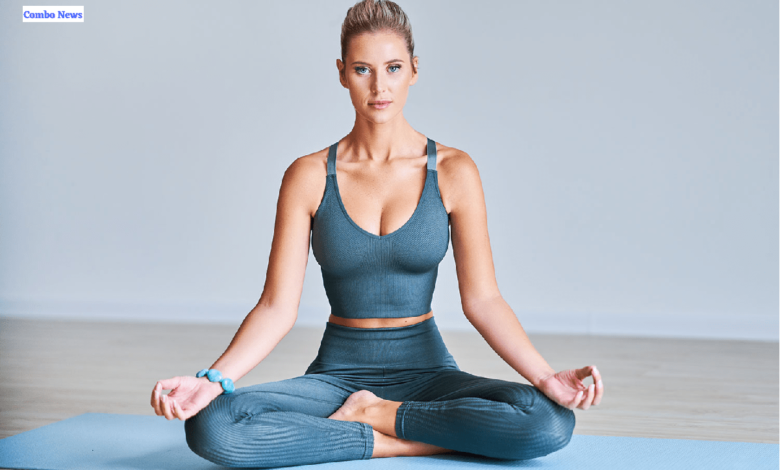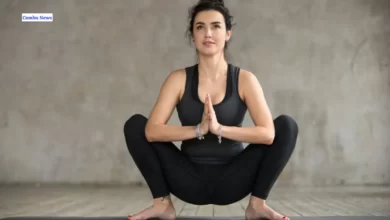
Yoga is evidence that sometimes the most uncomplicated daily routines can have the most considerable effects on your health. Although most yoga styles aren’t seen as challenging as other workout routines, regular yoga practice has positively affected your mental and physical health.
Yoga positively affects your long-term health by strengthening and calming the body and mind through breathing, meditation, and holding poses that build flexibility and strength. It is understandable why people have been doing yoga for almost 5,000 years and why, according to the Yoga Alliance, the number of Americans who practised yoga doubled between 2012 and 2016 to reach around 40 million.
Yoga helps to regulate mood.
“We have a wealth of research demonstrating that a regular mindfulness practice—the act of paying attention to the sensation in the body, thoughts, and emotions without judgment—can reduce stress and help us to feel calmer, more productive, and generally more even-keeled in our daily lives,” says Jenni Tarma, an ERYT500 yoga teacher and Yoga Medicine Therapeutic Specialist.
One 2014 review in Frontiers in Human Neuroscience concluded that regular yoga practice could aid in self-regulation after reviewing the history and studies of yoga (the ability to understand and manage your behaviour and reactions). The second research on teenagers between 13 and 18 discovered that yoga practice improved emotional control and self-esteem. According to Evan Lawrence, LMHC, CPT, and RYT200 yoga instructor, “Movement releases healthy neurotransmitters in the brain, which helps us feel good as well as assist with mood control.” “One of the things I like about yoga, in particular, is that there is a focus on physical movement and breathing at the same time.”
Also Read: The top 5 apps for learning zumba
Yoga strengthens your core.
“From a physical viewpoint, yoga is so fantastic for developing our core strength, which should be a non-negotiable aspect of any human’s workout,” says Gina Newton, NASM-certified personal trainer and RYT200 yoga teacher. (Always good to be reminded! To Transform Your Abs, Try These 4 Simple Plank Exercises.) We all need our core, and women who recently gave birth or have children need to take care of and maintain their core strength to support themselves, says Newton.
According to Harvard Medical School, a stronger core benefits the body in many ways, including better posture, balance, stability, alleviation from lower back discomfort, and support during regular activities like cleaning, working, and sports or exercise.
Yoga eases tension
According to Nicole Renée Matthews, RYT200 and director of Yoga at Newport Healthcare, “Yoga and meditation are effective techniques for stress resiliency and bolstering mental wellness.” Regular yoga helps relieve stress and anxiety, develops mental clarity and relaxation, centres and relaxes the mind, and improves focus and concentration.
Also Read: Here are top 5 apps to track your fitness routine
After participants completed a 12-week programme, one 2010 study published in the Journal of Alternative and Complementary Medicine found that practising yoga can boost mood and reduce anxiety even more than daily walking. Researchers have also discovered that yoga breathing exercises may contribute to the benefits of reduced pressure during practice.
According to Tarma, “belly breathing”—breathing deeply such that the abdomen expands rather than only taking a short chest breath—and lengthening the exhale are two practises that have been demonstrated to lessen physiological signs of stress. These strategies activate the parasympathetic nervous system, which reduces anxiety, jitteriness, and better sleep—all of which can enhance our mental health daily.
Yoga enhances mental health.
Yoga practice “improves total blood flow to the body, including the brain, [which is] excellent for cognition and memory,” claims Dr Gail Saltz, MD, associate professor of psychiatry at the New York Presbyterian Hospital Weill-Cornell School of Medicine.
According to a 2019 review article in the journal Brain Plasticity, behavioural interventions like yoga can “mitigate age-related and neurodegenerative decline” because of the positive effects the regular practice has on various functional brain regions, including the prefrontal cortex and the hippocampus, which are crucial for learning and memory (cognitive control functions).
Also Read: Investors place a high value on the potential earnings of these healthcare companies.
Yoga increases mobility and flexibility.
Daily yoga practice, according to Lawrence, “allows us to physically engage our muscles and go through broader ranges of joint mobility than we do routinely navigating through life.” “This keeps us supple and limber.”
According to Samantha Hoff, 200-YTT yoga instructor and owner of Pottery with a Purpose, regular yoga practice improves balance and flexibility, aiding posture. Since you’ll put your joints through the majority—or all—of their ranges of motion, it also aids in joint mobility from a physical standpoint.
Yoga builds endurance and muscle
From a musculoskeletal standpoint, yoga loads our bodies and joints in various positions and situations. For example, consider prolonged static holds in poses that test the endurance of our tissues or controlled transitions between forms that improve strength, control, and coordination. These various aspects of our movement capacities work together to improve our load tolerance and general function capacity. Yoga is also typically a relatively accessible and safe movement modality because most types require body weight and move at a very moderate pace.








